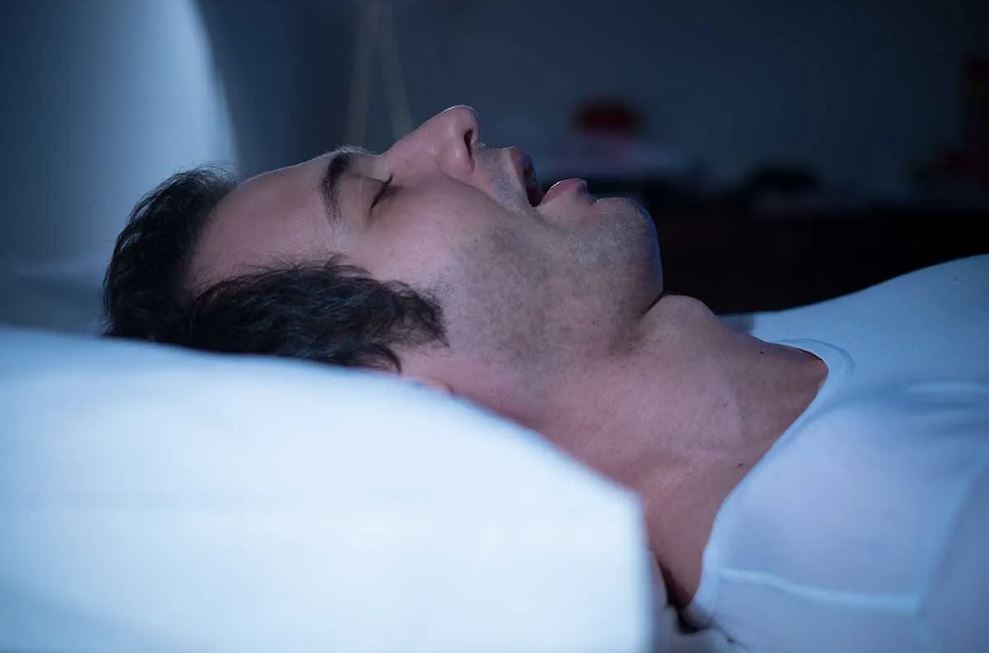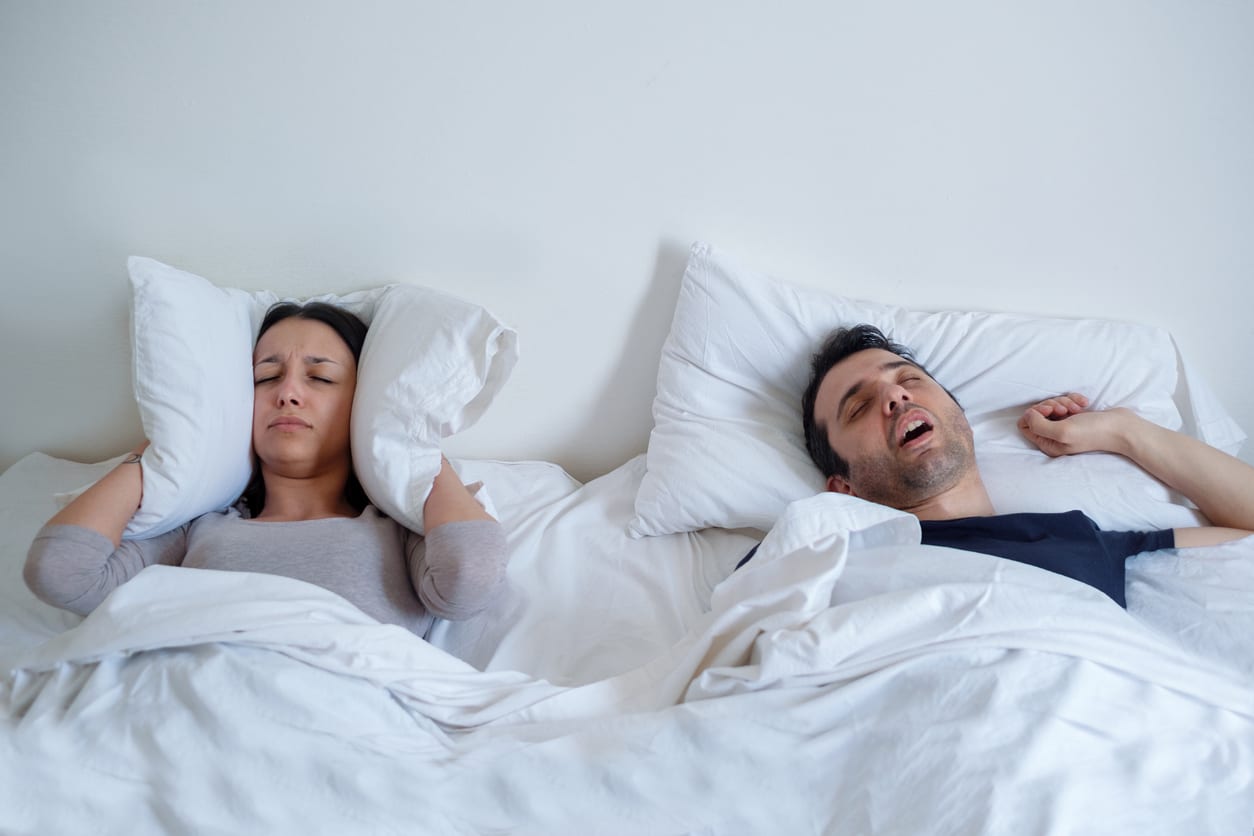MANY PEOPLE FAIL TO RECOGNIZE THEY HAVE IT GIVEN ITS SUBTLE SYMPTOMS- HERE’S WHAT TO LOOK OUT FOR
Many Americans are suffering from a sleep epidemic without even knowing it. The average American sleeps for 6.8 hours a night. However, technologies such as the internet, TV and the like hinder us from reaching dreamland quite sooner. But still, many suffer from sleep apnea, a condition that prevents one from enjoying a good night’s sleep.
Here’s a rather shocking statistics- up to 22 million Americans suffer from sleep apnea and 80% of this population goes undiagnosed. Thus, many are living without stop sleep apnea even without knowing they are unwell.
This makes it one of the most unrecognized health conditions. With much of the population being uninformed about their condition, the numbers are bound to incredibly skyrocket.
HERE’S WHAT HAPPENS DURING A SLEEP APNEA
Sleep apnea occurs when your airway goes through series of episodic collapses while sleeping. This interrupts your breathing, preventing oxygen from reaching your cells.
Thus, your body has to restore your breathing and oxygen levels back to normalcy recurrently. Every time this happens, you wake briefly from sleep. This negatively impacts your sleep pattern, which could lead to problems such as fatigue, daytime sleepiness, and many other symptoms.
Here’s a caveat- If you have up to 15 “stopped-breathing” bouts of wake-from-sleep episodes per hour, your sleep apnea could be either moderate or severe. This could terribly tell on your health.

SYMPTOMS OF SLEEP APNEA- IT RANGES FROM MILD TO SEVERE
Here’s the thing- mild sleep apnea doesn’t come in one way. It could be quite unpredictable. As much as snoring is usually its first symptom, not all snorers have this sleep condition.
Mild apnea commonly comes with mild sleepiness during the day and fatigue. You could also experience morning headaches. With a severe form of apnea, you can wake up feeling breathless. You could also experience a decline in performance at school or work, and have lower sex urges (male or female).
If you have a bed partner, he/she may tell you about how uncommonly loud and scary you snore. Take note of symptoms like this as you could miss bringing them up when going for your regular medical checkup. Many have missed such symptoms and have gone on living with sleep apnea without even knowing it.
Given the growing concerns of managing increasingly difficult health challenges in lesser time than needed, your doctor may not ask you about this sleep condition as it’s of little essence compared to many other critical health problems.
So, ensure you bring up these symptoms to help your doctor arrive more quickly at the right diagnosis and treat you.
WHAT UNTREATED SLEEP APNEA LEAVES YOU SUSCEPTIBLE TO
Sleep apnea is quite an unrecognized health condition and many people make the mistake of not seeing the dangers and risks it poses. This sleep condition increases your chances of developing a heart attack, stroke, and high blood pressure.
How? When your airway temporarily collapses and you stop breathing while sleeping, your body responds by releasing stress hormones. According to the American Heart Association, with this sleep condition, stress hormones can lead to other health conditions mentioned earlier.
Also, sleep apnea can also increase your risk of experiencing a vehicle accident, injuries at work, and even poor academic achievement for all ages.
In a recent study the Federal Motor Carrier Safety Administration (FMCSA) financed, it was discovered close to 30% of commercial truck drivers suffer from sleep apnea. Thinking about what that could mean for people, vehicles on the road, and even the driver? Of course, terrifying. Feeling sleepy while behind a wheel can be dangerous.
Moreover, this sleep condition can also hamper academic performance as it cuts down on brain power. Numerous studies reveal that students with mild or severe sleep apnea experienced poor academic performances as opposed to those who were free of the condition.
More so, a research team carried out a brain imaging on some kids with sleep apnea that had gone untreated. It was discovered that they could find some injuries on the regions of the brain that are for memory and complex thought, learning, and the like.
They also did very poorly in standardized tests as opposed to other children free of the condition and had lower IQ tests.
Leaving this sleep condition untreated can be dangerous for you and also people around you. If you notice any of the symptoms above, ensure you see a doctor.

COMMON CAUSES OF SLEEP APNEA
The main risk factors of developing this sleep condition are obesity, being male, and ageing and menopause. Also, drinking excessive alcohol and sleeping on your back can help increase the risk of developing the condition.
For obese people, fat deposits in their upper respiratory tract keep the airway narrowed. As a result, muscle activity is reduced in this region. Apneic episodes then set in leading up to sleep apnea.
Also gender plays a role in the development of this condition as males are more vulnerable. How? The upper respiratory region in men has an increased neck circumference and an increased pharyngeal airway length than women.
In simpler terms, men’s upper airway region is prone to having apneic episodes while sleeping due to its difference in length from women.
For women, they could develop this sleep condition once they’ve reached menopause. Postmenopausal women who suffer from it complains of tiredness or fatigue which could be as a result of depression. Postmenopausal women are likelier to develop sleep apnea because the female hormone levels that help open the airway plummets.
Usually, they don’t experience the regular symptoms such as loud snoring, gasping or choking while sleeping. But they experience being very tired almost all the time.
Other causes of this sleep condition include large tonsils, obstructive tissues in the airway, and the like. It could also be a hereditary condition as 25 to 30 percent of cases present a family history.
CONCLUSION
Sleep apnea is a health problem that could lead to other life-threatening conditions. Ensure you see a sleep medicine specialist if you experience any of these symptoms in this piece.
More to read: What is obstructive sleep apnea
